
10 Q
1st

10 Q
KG - 1st

10 Q
1st - 10th

15 Q
1st - 4th
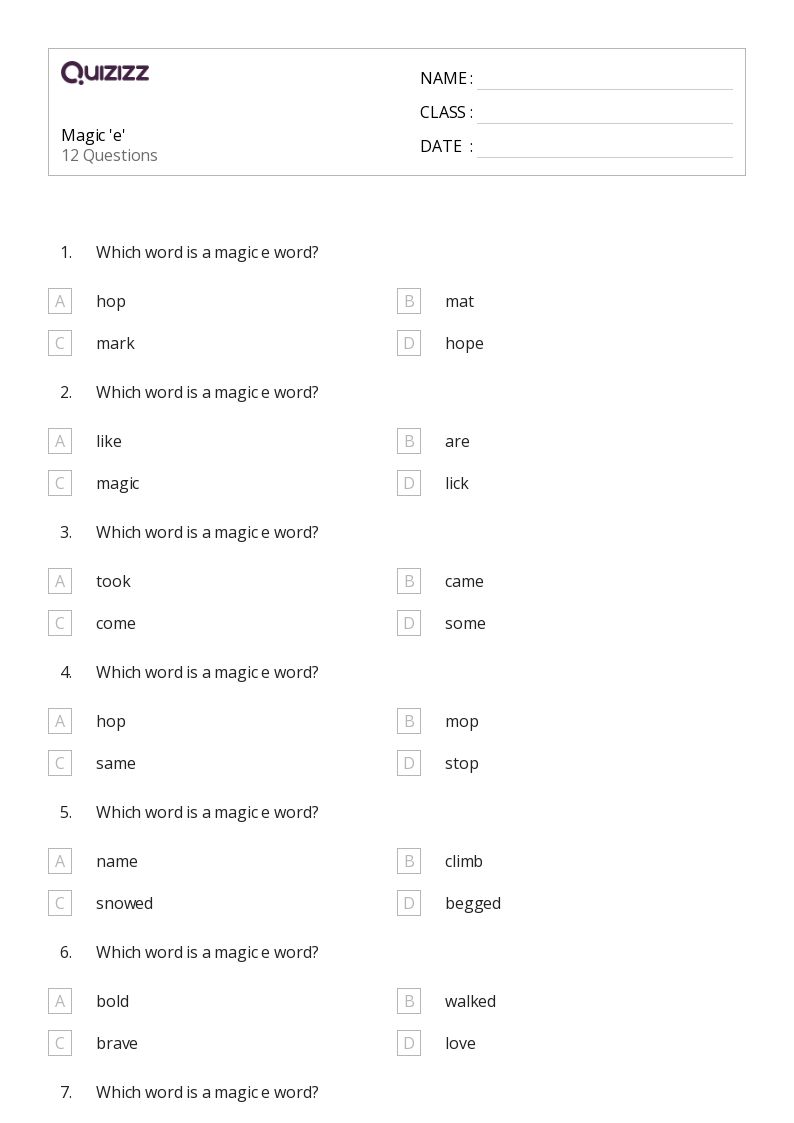
12 Q
1st

13 Q
1st - 4th

20 Q
1st - 5th

10 Q
1st
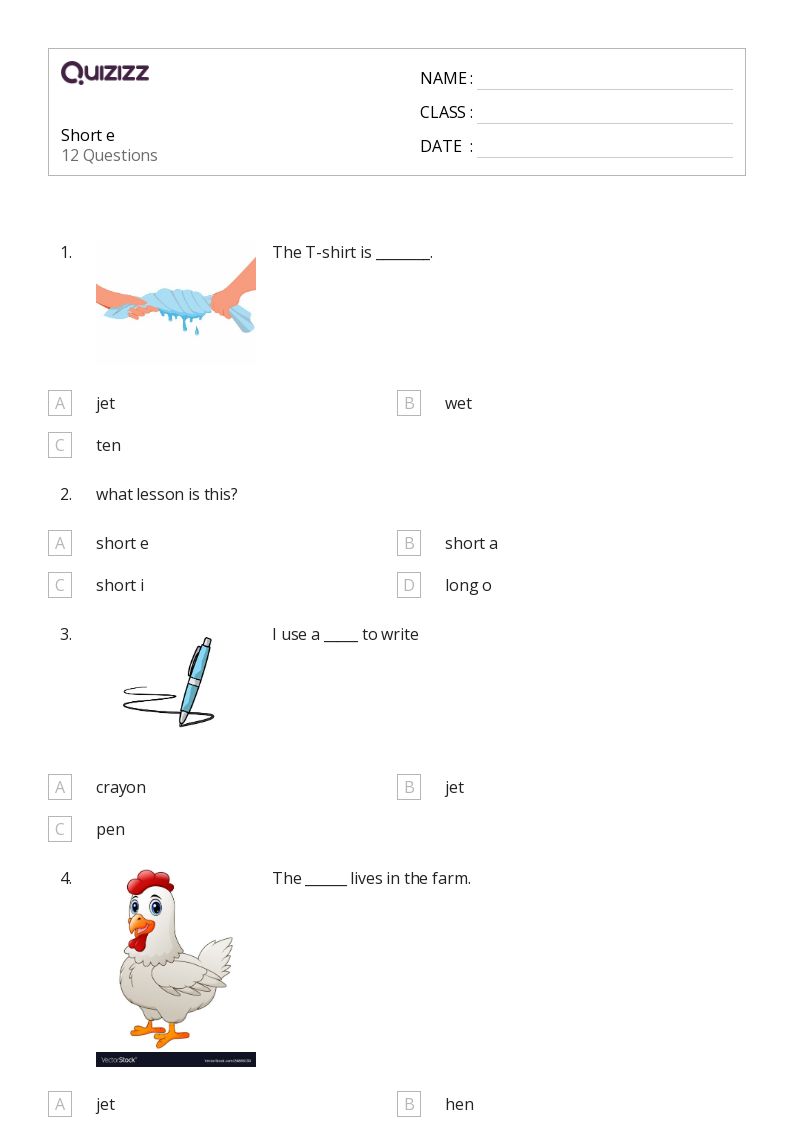
12 Q
1st

10 Q
1st - 2nd

15 Q
1st - 3rd

10 Q
1st - 2nd

17 Q
1st - 2nd

22 Q
1st - 2nd
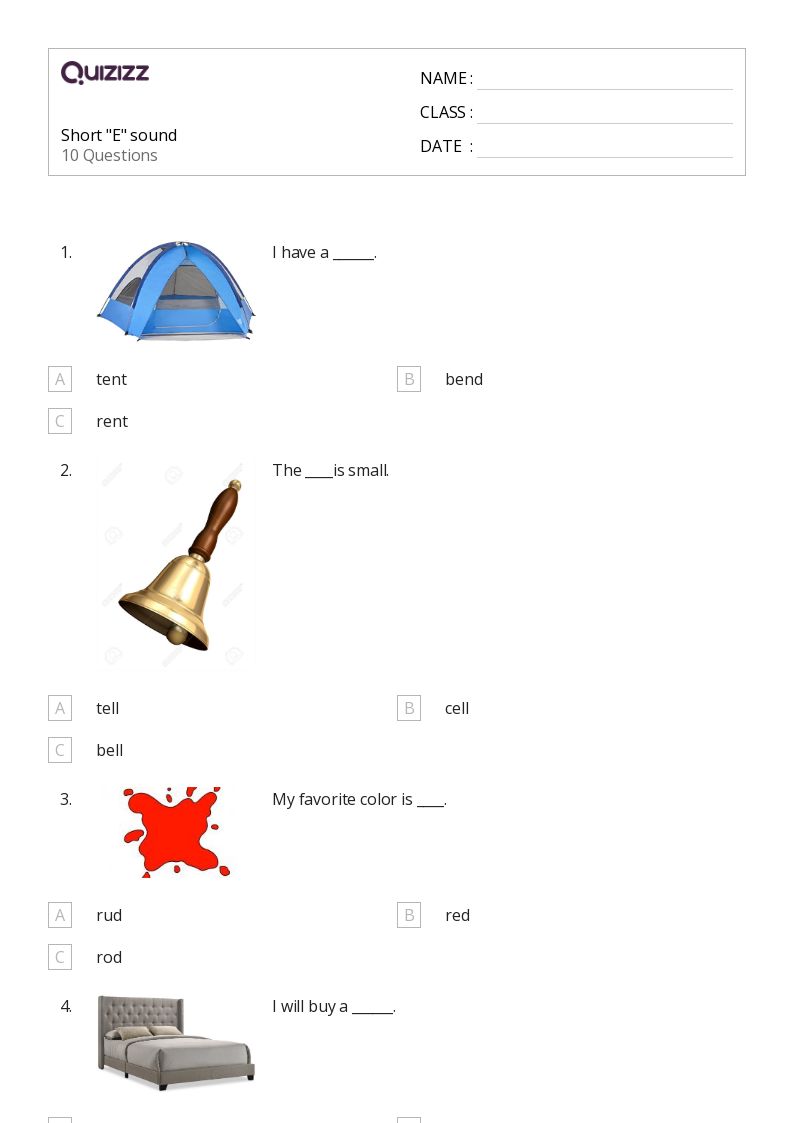
10 Q
1st
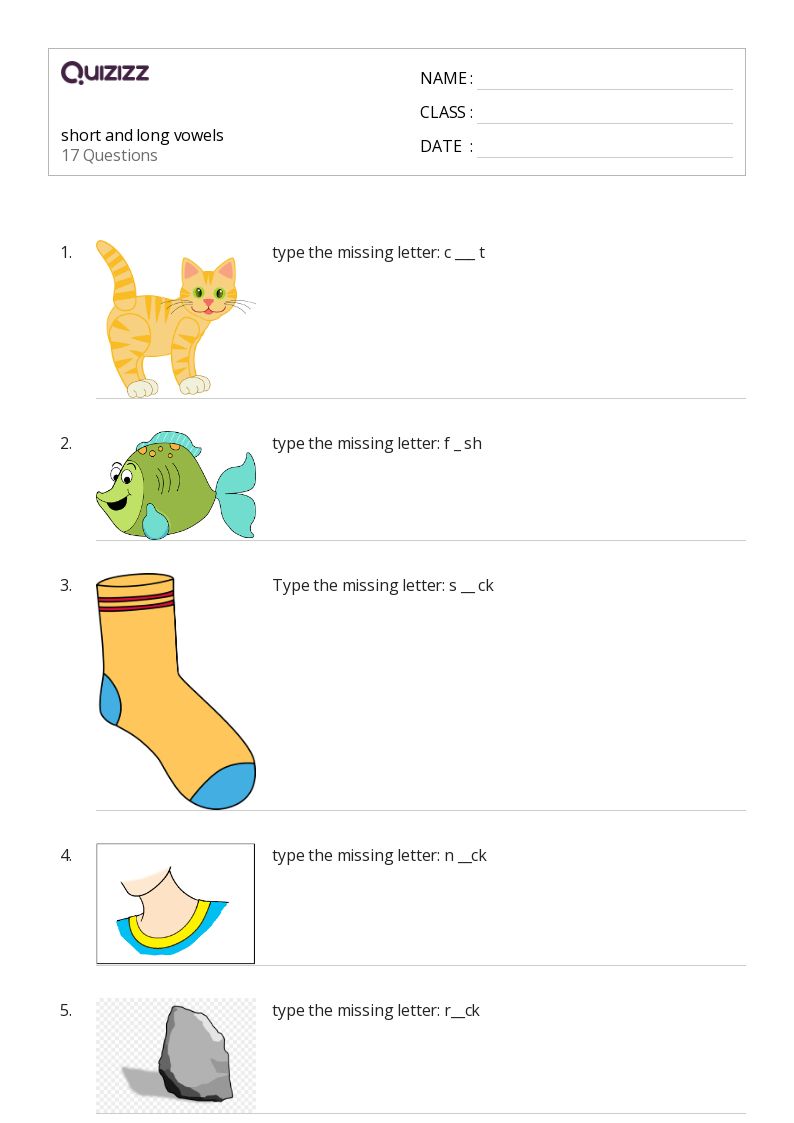
17 Q
1st - 3rd

14 Q
1st - 2nd

10 Q
1st - 9th

10 Q
1st

10 Q
1st

16 Q
1st - 5th

15 Q
1st
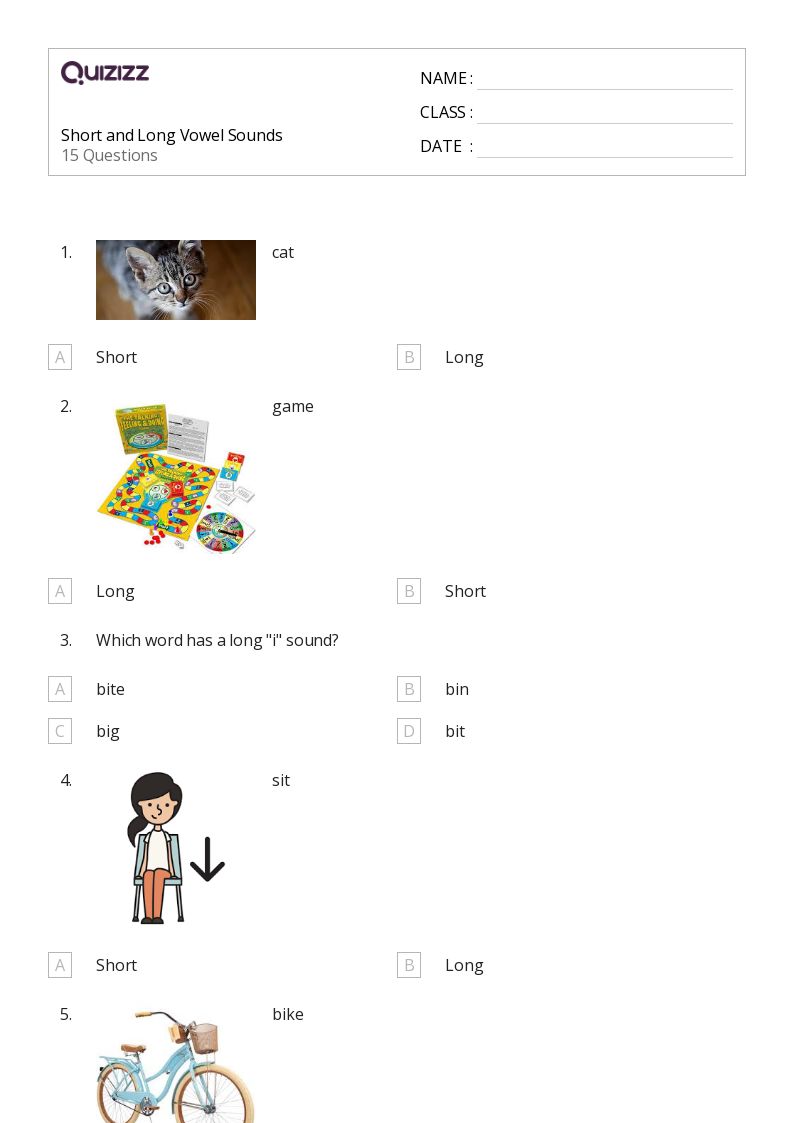
15 Q
1st - 2nd

23 Q
1st - 2nd
Explore Long E/Short E Worksheets by Grades
Explore Other Subject Worksheets for class 1
Browse resources by Grade
Browse resources by Subject
Explore printable Long E/Short E worksheets for 1st Class
Long E/Short E worksheets for Class 1 are an essential resource for teachers looking to enhance their students' reading and writing skills. These worksheets focus on teaching the fundamentals of grammar, phonics, letter sounds, and vowels, which are crucial for building a strong foundation in language arts. By incorporating these worksheets into their lesson plans, teachers can provide their students with engaging and interactive activities that will help them differentiate between long E and short E sounds. These activities not only improve students' understanding of vowel sounds but also boost their overall reading and writing abilities. With the use of Long E/Short E worksheets for Class 1, teachers can ensure that their students are well-equipped to tackle more complex language concepts as they progress through their education.
Quizizz is an excellent platform for teachers who are looking to supplement their Long E/Short E worksheets for Class 1 with interactive and engaging activities. This platform offers a variety of resources, including quizzes, games, and other educational content that can be easily integrated into lesson plans. By incorporating Quizizz into their teaching strategies, educators can provide their students with a fun and interactive way to practice their reading, writing, grammar, phonics, letter sounds, and vowel skills. This not only helps to reinforce the concepts taught through the Long E/Short E worksheets for Class 1 but also allows students to apply their knowledge in a more dynamic and enjoyable learning environment. With Quizizz, teachers can create a well-rounded and comprehensive language arts curriculum that caters to the diverse needs and learning styles of their students.
